At BenchSci our mission is to empower the world's scientists to run more successful experiments to accelerate drug discovery. So when we began training our machine learning (ML) algorithms to decode scientific publications, we focussed on where we could make the biggest impact: detecting antibody usage in the literature to combat the the "Antibody Crisis," and help scientist to make more informed decisions in one of the most inefficient areas of the research process.
But we know antibodies are often just one part of the experimental design process, and many other reagents are also used in biomedical experiments. That's why we've been hard at work expanding our ML-based analyses to decode the usage of additional reagents in the published literature. As a first step, we have refined our text and image ML technology to also decode the usage of RNAi products and recombinant proteins, as these reagents are often used in conjunction with antibodies.
The result? We are now able to detect if an experiment included the use of antibodies along with RNAi products and/or recombinant proteins. Today, this gives you the ability to identify antibodies on BenchSci that have been verified by knockout/knockdown (KO/KD) or overexpression (OE) experiments in the literature. In the near future, it paves the way for BenchSci to be able to help scientists find the right biological reagents for their experiments, based on their usage throughout the literature.
So how can you find this data? We're excited to introduce a new filter that can help you easily identify antibodies that have been verified by genetic (ie. KO/KD) , the most commonly adopted antibody validation method among the 5 pillars proposed by Uhlen et al. 2016, as well as antibodies that have been verified by overexpression experiments.
Read on to find out how you can leverage this new data type for your antibody search!
New Filter: Verification
You can find this new option under the "Product Specs" filter category.
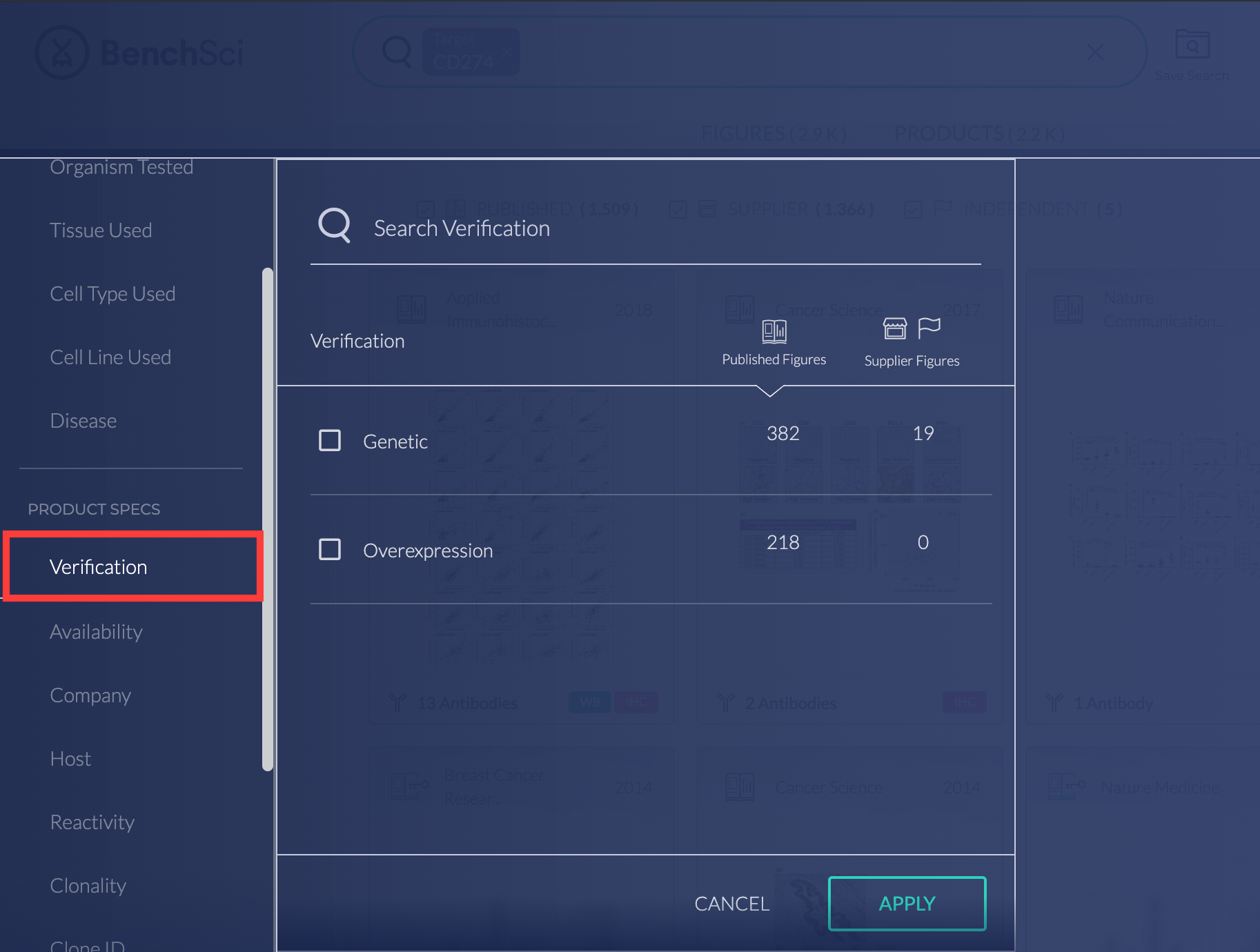
Applying the verification filter will narrow down your product results to only include products that have an associated verification image:
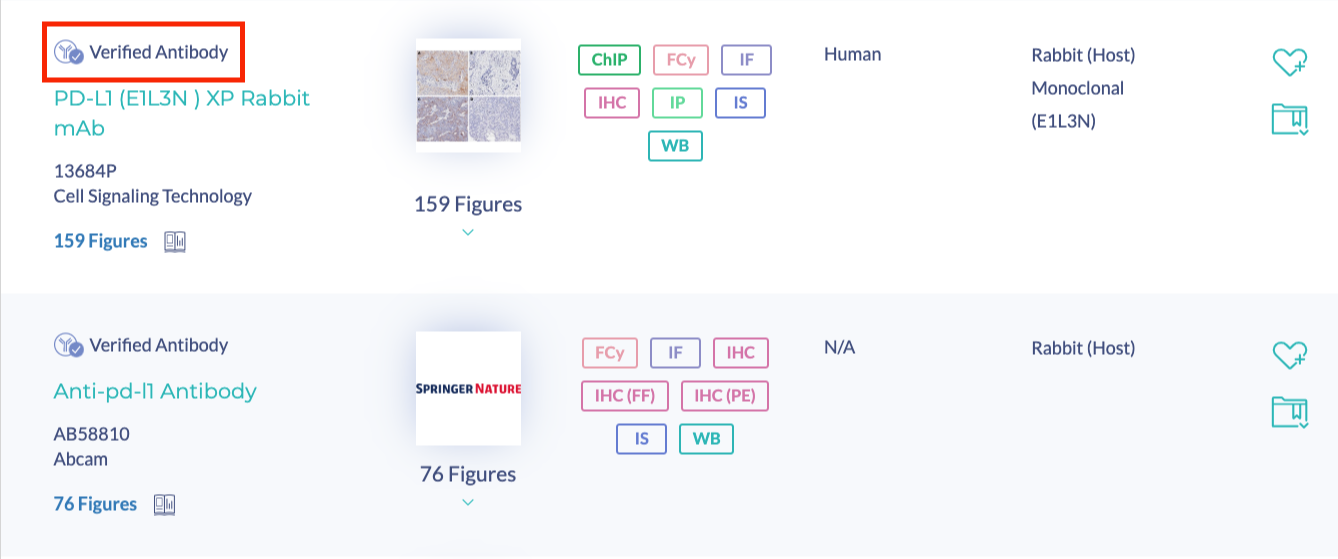
And will narrow down the figures where verified products were used:
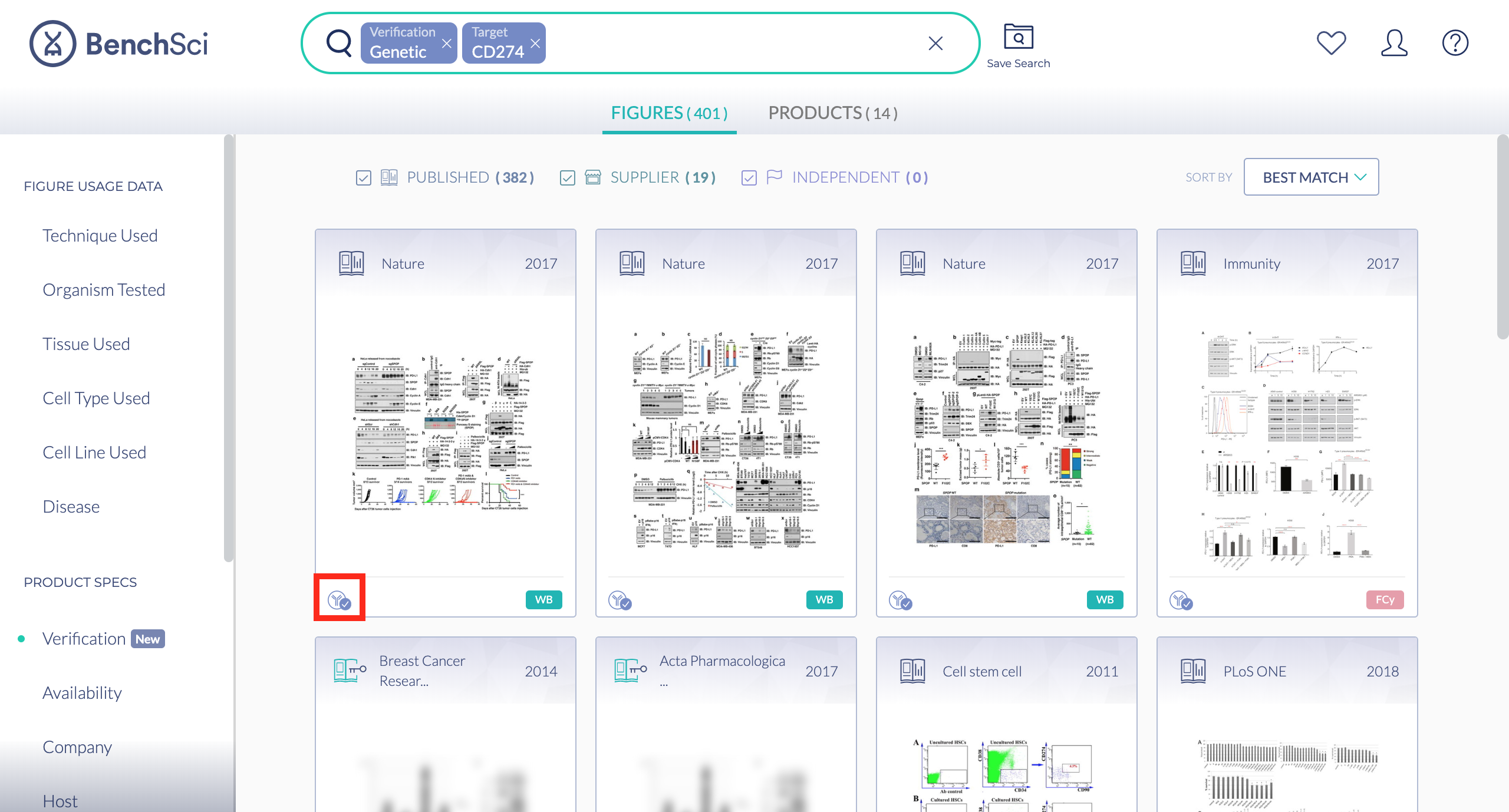
Verification Identifiers on Figures and Products
To highlight verified antibodies and their usage in the literature, we added a new identifier to both the figure and product results to help you easily identify these data during your search.
On figure results:
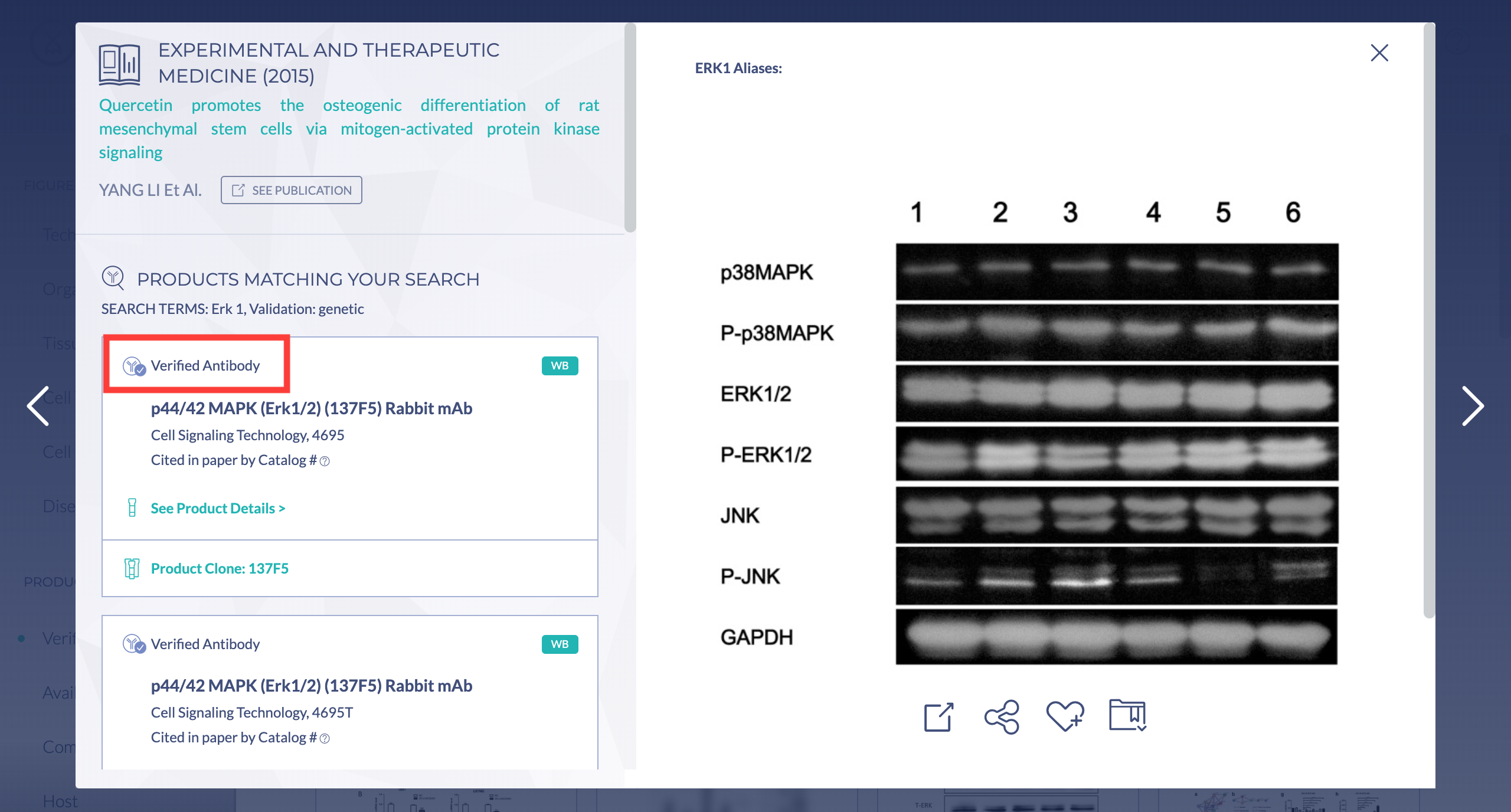
On product page:
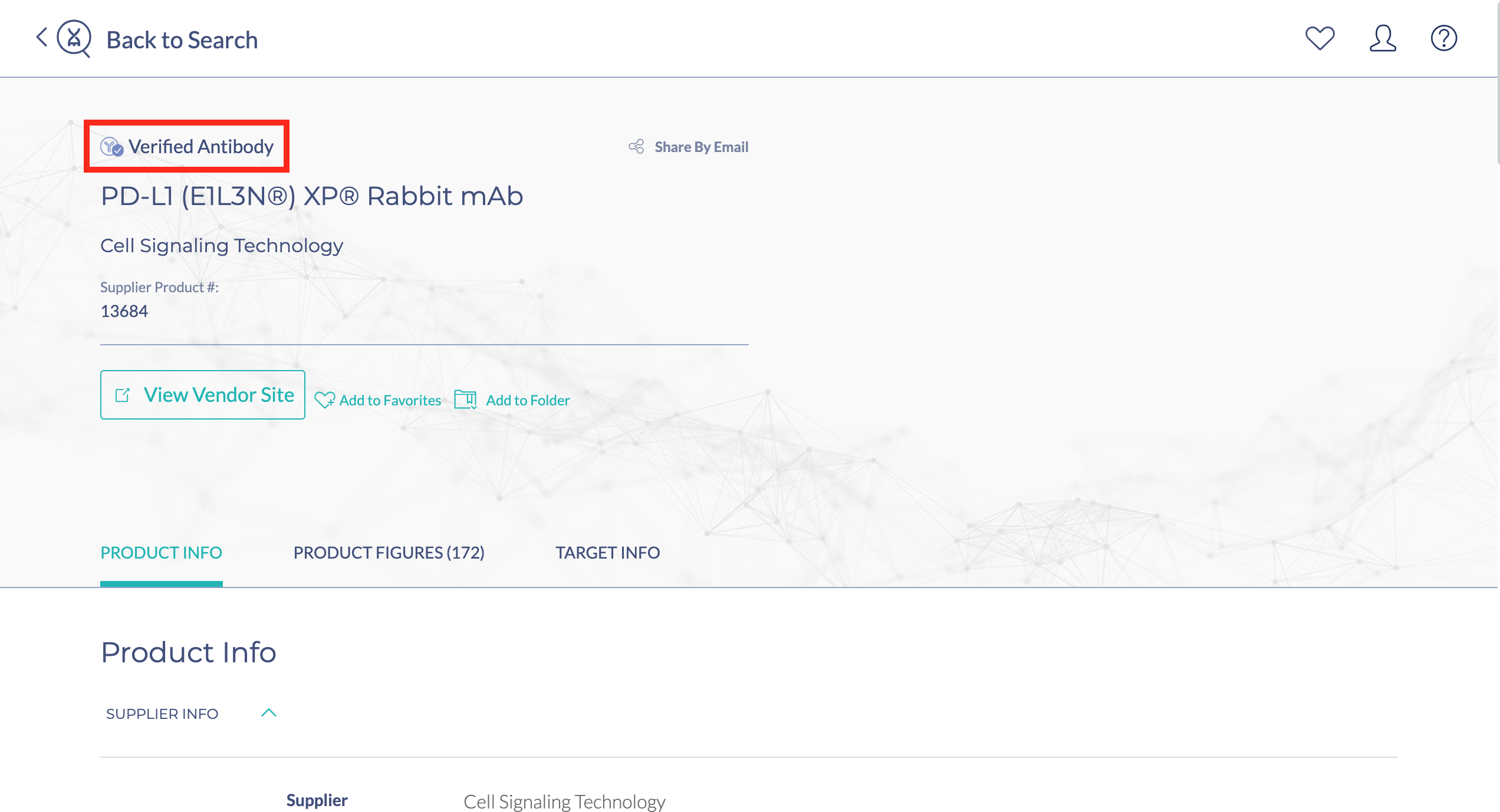
For verified antibodies, you can also see the type of validation on the product page under product specs:
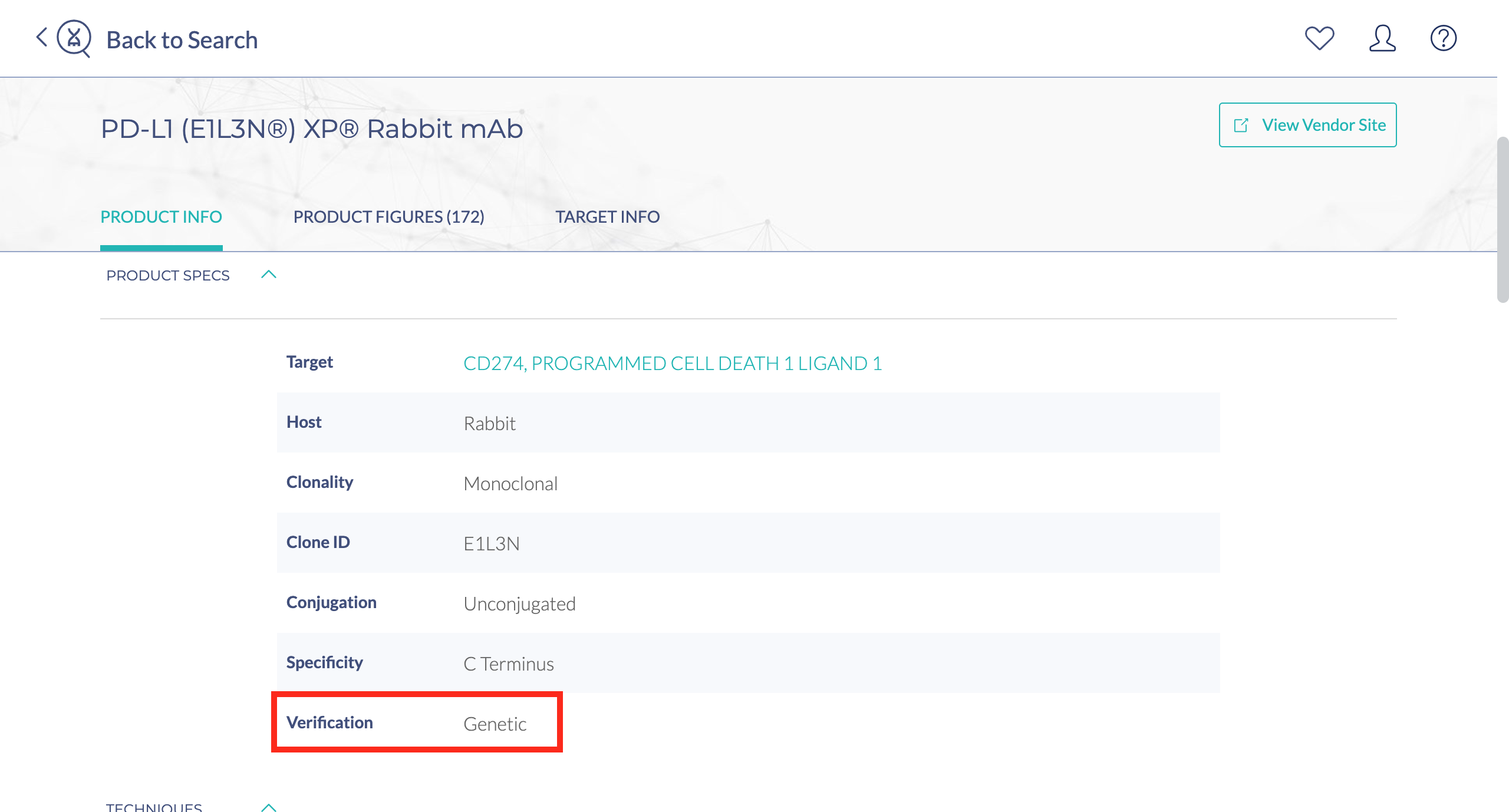
How Is This Different From the KO/KD/OE Options in the "Technique Used" Filter?
Great question! Since our algorithm analyzes articles at the level of experiments, we will label figures that contain KO/KD/OE experiments regardless of whether any antibody usage was detected. When you apply the KO/KD/OE options under the "Technique Used" filter, we will display all figures that contain a KO/KD/OE experiment, where the antibody used may or may not be known. In contrast, when you apply the "genetic" or "recombinant" options under the "Verification" filter, we will display all figures in which verified antibodies were used.
Additional Validation Data From Vendors
Last but not least, we also added more validation data generated by our vendor partners. You will be able to review these data under the "Supplier" data category once you applied the "Verification" filter, like so:
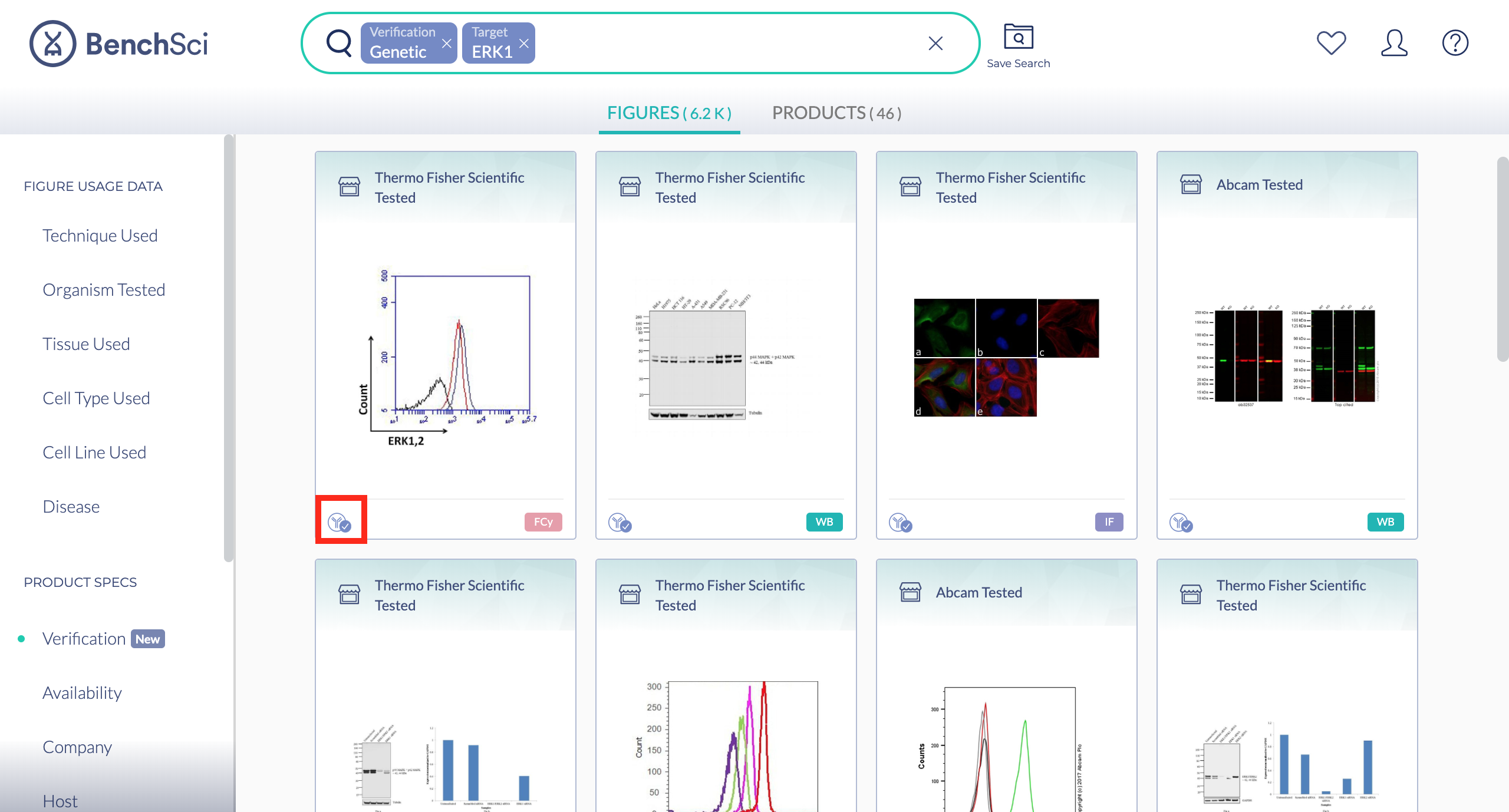
There you have it! Were you able to find verified antibodies for your experiment? Let us know your thoughts in the comment below.
Until next time, happy researching!
